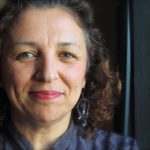Welcome to the February 2010 issue of the Global Washington newsletter. If you would like to contact us directly, please email us.
IN THIS ISSUE
- Note from our Executive Director
- Spotlight: New Website Feature-Legislative Index Summary
- Featured Organizations: Fred Hutchinson Cancer Research Center’s Vaccine and Infectious Disease Institute (VIDI)
- Changemaker: Judy and Richard Anderson of HEAL Africa
- Global Entertainment: Africa Doesn’t Matter: How the West Has Failed the Poorest Continent and What We Can Do About It.
- Announcements: The Seattle International Foundation Announces its First Global Program Grantmaking Round of 2010; Global Washington is Looking for a Part-Time Paid Intern, 5-8 Hours/Week; Arasu Named Associate Vice President for International Programs and Chief International Officer; DATE CHANGE FOR GLOBAL SOCIAL BOWLING EVENT AT THE GARAGE
- Upcoming Events
Happy Lunar New year to all of you. I hope that you have been able to enjoy the beautiful early spring.
We at Global Washington are extremely busy with starting our programming this month for 2010. In order for us to continue to do a great job as a membership organization , I would like to ask you to please take a few minutes to fill out our survey. This survey is designed to help us provide you with programs, events, and services that best fulfill your organization’s needs.
This feedback directly influences Global Washington’s strategic development agenda, and helps us identify and prioritize program and service support currently lacking in our global development community. Member organizations are greatly encouraged to give us some feedback about our work.
If you are not already a member, we are still eager to hear your thoughts on how we can engage you. Plus, one individual who fills out our survey will receive FREE REGISTRATION AT OUR 2010 CONFERENCE, and three individuals will receive a $30 gift certificate to Theo Chocolate! The survey will be open through March 3rd, 2010.
In unity,
Bookda Gheisar, Executive Director
We have launched a new feature on our website- a legislative index. It is a catalogue of global development-related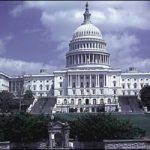 legislation in the 111th Congress broken into nine categories, including Foreign Aid Reform, Global Health, Global Education, Climate Change, and Women’s Empowerment and Human Rights. Our legislative index provides links to the official bill summary/status, one-sentence summaries of selected bills, a list of WA state cosponsors, and links to news articles and blogs where available. Visit the Global Washington legislative index on our website.
legislation in the 111th Congress broken into nine categories, including Foreign Aid Reform, Global Health, Global Education, Climate Change, and Women’s Empowerment and Human Rights. Our legislative index provides links to the official bill summary/status, one-sentence summaries of selected bills, a list of WA state cosponsors, and links to news articles and blogs where available. Visit the Global Washington legislative index on our website.
 The Fred Hutchinson Cancer Research Center’s Vaccine and Infectious Disease Institute (VIDI) celebrated a milestone achievement last October when it was awarded a $500,000 USAID grant to build the first U.S.-sponsored cancer clinic, research and medical-training facility in Africa. In partnership with the Uganda Cancer Institute—Uganda’s lone cancer clinic—the new facility will be located in Kampala, on the campus of Mulago Hospital and Makerere University, one of Africa’s oldest and most reputable academic institutions.
The Fred Hutchinson Cancer Research Center’s Vaccine and Infectious Disease Institute (VIDI) celebrated a milestone achievement last October when it was awarded a $500,000 USAID grant to build the first U.S.-sponsored cancer clinic, research and medical-training facility in Africa. In partnership with the Uganda Cancer Institute—Uganda’s lone cancer clinic—the new facility will be located in Kampala, on the campus of Mulago Hospital and Makerere University, one of Africa’s oldest and most reputable academic institutions.The importance of this accomplishment goes well beyond what this new facility can do for Uganda, a country burdened with one of the highest cancer rates in the world. With a team of top international oncologists and infectious disease experts, including co-directors of the Uganda Program on Cancer and Infectious Diseases (UPCID) Dr. Corey Casper and Dr. Jackson Orem, the project is an ambitious attempt to change medical history.
With roughly 22% of the world’s cancers attributable to chronic infections, the collaboration between VIDI and the Uganda Cancer Institute could potentially lead to astounding medical breakthroughs in developing vaccines or treatments that eradicate infection-related cancers, such as Kaposi sarcoma and Burkitt lymphoma. “Of all the different causes of cancer—genetic, environmental, infectious disease, and other causes—developing vaccines that eliminate infectious disease is what we can do something about in the paradigm of eradicating cancer,” explained Dr. Casper. In Uganda, where six out of ten of the most common cancers are caused by infectious diseases, researchers encounter unique conditions for identifying new infectious causes of cancer, potentially leading to the development of new methods for prevention and treatment. 84% of the Ugandan population is infected with HHV8, a virus that can develop into Kaposi’s sarcoma. And Burkitt lymphoma, an extremely aggressive cancer associated with Epstein-Barr virus, is the most common form of childhood cancer in Central Africa. The impact of cancer in Uganda is compounded by the lack of screening and early detection tools in resource-poor countries. As a result, a cancer diagnosis is often synonymous with a death sentence.
In Uganda, where six out of ten of the most common cancers are caused by infectious diseases, researchers encounter unique conditions for identifying new infectious causes of cancer, potentially leading to the development of new methods for prevention and treatment. 84% of the Ugandan population is infected with HHV8, a virus that can develop into Kaposi’s sarcoma. And Burkitt lymphoma, an extremely aggressive cancer associated with Epstein-Barr virus, is the most common form of childhood cancer in Central Africa. The impact of cancer in Uganda is compounded by the lack of screening and early detection tools in resource-poor countries. As a result, a cancer diagnosis is often synonymous with a death sentence.
These staggering statistics reflect the massive burden of infection-related cancers on Ugandan society, but also offer a novel opportunity for putting Uganda at the center of international cancer research and innovation benefiting not only people in the emerging countries but also in the developed world as well. Uganda has maintained a national registry of cancer patients for nearly 60 years, a valuable tool for scientists conducting population-based studies. In addition, the Uganda Cancer Institute has a long history of collaborating with international organizations and has collected data for more than 200 studies, reflecting the country’s focus on medical research and education.
Prior to the Hutchinson Center’s collaboration with the Uganda Cancer Institute, the Institute had only one oncologist on staff, outdated equipment, and an overcrowded facility. The partnership has already culminated in the addition of two more oncologists, with two additional physician-scientists currently participating in fellowship programs at the Hutchinson Center, and the implementation of a faculty exchange program. The goal is to continue to train cancer-care providers and develop a world-class center for cancer treatment and research, complete with a molecular diagnostic laboratory and inpatient and outpatient care facilities. According to Dr. Casper, “In order to make a meaningful difference in Uganda, we need to build infrastructure, offer efficient care delivery, train a cadre of cancer-care providers, improve outcomes, and raise awareness of infection-related cancers.”
 Cancer kills more people than malaria, HIV/AIDS, and tuberculosis combined, yet knowledge of infection-related cancers remains relatively low on the public radar. As a result, lack of political will and public advocacy stifles funding for pathophysiology research and limits opportunities for developing prevention and treatment strategies, as well as vital diagnostic tools.
Cancer kills more people than malaria, HIV/AIDS, and tuberculosis combined, yet knowledge of infection-related cancers remains relatively low on the public radar. As a result, lack of political will and public advocacy stifles funding for pathophysiology research and limits opportunities for developing prevention and treatment strategies, as well as vital diagnostic tools.
Washington State, a hub for cutting-edge global health research, is in a unique position to raise the profile of infection-related cancers. VIDI is one of the nation’s largest infectious disease research groups, and our region’s renowned experts in infectious disease and oncology are unparalleled in the world. Increasing awareness and visibility regarding infection-related cancers provides a powerful boost to the scientific community by engaging public interest and enhancing advocacy efforts.
To learn more about the Hutchinson Center’s Vaccine and Infectious Disease Institute (VIDI) and the Uganda Cancer Institute, please follow the links below:
http://www.fhcrc.org/about/pubs/center_news/online/2009/10/Uganda.html#
http://fhcrc.org/about/ne/news/2009/10/26/uganda.html
http://med.mak.ac.ug/p.php?a=view&vID=178&p=Cancer%20Institute
For more information about the innovative work of the Uganda Program on Cancer and Infectious Diseases (UPCID), please visit:
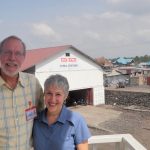
“We are the bridge for the people of Goma”
As passionate and inspiring US directors for HEAL Africa, Judy and Richard Anderson have been part of a group that decided to help establish a US organization to support the work in Goma. Based in Goma, Congo, on the border of Rwanda, HEAL Africa has been a beacon of light in eastern Congo for Congolese as they are confronted daily with rape, pillage, and destruction from militias engaging in regional war since the spillover of the Rwandan genocide in 1994. In eastern Congo, particularly the northeast in Kivu and Maniema, there is still an ongoing occupation by troops from the former Rwandan army (FDLR), various militias, and the FARDC. It’s a very complicated situation involving money, minerals and other natural resources. The end result is that the local population keeps suffering. Of the population of 7 million in N Kivu, 1.1 million are displaced and even more are displaced in S. Kivu.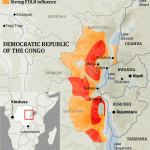
Judy Anderson, the current executive director of HEAL Africa, grew up in the Congo spending her early years there and has many fond memories, as well as challenging moments: When Judy was about ten years old a Congolese friend of hers, Maria, failed to appear in school after their holiday break. This perplexed Judy and was told by Maria’s mother that she would no longer be attending school. Confused, Judy asked her father for an explanation and to her dismay was told that Maria’s family and a prospective groom’s family decided to marry her off. Maria’s father was worried that if Maria were to receive further education her chances of marriage would be threatened because the prospective groom only had first or second grade level education and didn’t want to marry someone with more education than he had.Judy remembers clearly that day when she was told that news and cried to her Dad “it’s not fair!” She said, “on that day, I recognized that my life was completely different from hers: our futures would be so very different. That was the time it really entered my consciousness–and where the differences lay. The future, the possibilities, was defined for her by her community and they would be very different from mine.” Ever since, Judy has tried to make a difference in opportunities girls and women have, and to show them that they could have a voice.” That was a defining moment in Judy’s life and she was determined to see that Congolese women could have the same favorable circumstances she has had.
Judy’s husband, Richard, has been very involved in Africa since the 1970’s working with many organizations such as World Vision, World Relief Corp., and of course HEAL Africa where he was the executive director in 2006-2007, and currently works as the chief development officer.. He was attracted to HEAL Africa because he felt it was unique and liked the way it looked at “health” in its broad meaning. The vision of HEAL Africa is one in that health cannot be disjointed; it must be viewed in its totality. Health in Congo is community. Health is trust and cohesion. Richard was drawn to HEAL Africa because of this view as well as the organization’s ability to recognize that solutions are multi-dimensional, and must be defined and owned locally.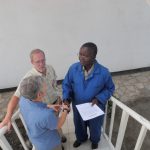
Richard recalled it was in 1994 after he helped set up aid in Goma that he first recognized a phenomenon that hate and fear in Congo transmits itself. He was changed by his experiences in Goma and came back from it with the ambition to find people of vision with aspirations for Congo and help them achieve what they see can be achieved for the people of Congo.
“It’s not just the story of the people’s horrid past,
but what they’ve stood up to do now—it’s the NOW”
Despite 16 years of instability in Goma, Judy is optimistic exactly because the people of Congo are creative, and full of hope. The young generation wants a different future. Many are committed to making it happen. HEAL Africa is a place where the best of the West can be offered to men and women. Due to HEAL Africa, the people of Congo have been reminded that they must not rely solely on external help to rebuild their nation. Judy and Richard’s goal is to foster community cohesion that reaches across dividers such as religions and villages. Violence, rape, and HIV cannot be solved by one group. Thus, they stress that the people of Congo must learn to trust each other in order to HEAL as a people.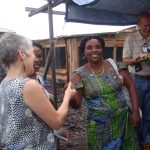
“It’s exciting to know we are investing in Congo’s future leaders”
Judy states the people of eastern Congo are internally-displaced with fragmented communities. It is the goal of HEAL Africa to build a framework of trust and bring leadership together. There is ongoing training in mediation skills, assessment and critical thinking. HEAL Africa is preparing the future leaders of Congo to choose strategies that will enable them to ultimately help the poorest and weakest in their villages.
“It’s having the long-term view that will affect this generation, and the next, and the next”
Richard and Judy would be the first ones to tell you that a “cookie-cutter” approach to foreign aid will not work, but they believe shared principles and ideas can indeed apply and be coordinated on a higher level. They felt Global Washington’s annual conference is a great opportunity to learn from other organizations in their successful strategies. HEAL Africa has been successful because it is locally-based. It was begun and is run by Congolese committed to change. Programs are developed from the field, not from offices. We at Global Washington hope to learn from Judy and Richard Anderson’s experiences with HEAL Africa by creating a foundation for a Washington-based community. A community that is capable of convening organizations to ultimately create cohesion and trust much like Judy and Richard have been diligently working towards in Goma, Congo.
For more information about HEAL Africa please visit:
http://www.HEALafrica.org/cms/
Their Action in Community philosophy:
http://www.HEALafrica.org/cms/programs/action-in-community/
To contact HEAL Africa’s US office, please send an email to: info@HEALafrica.org
For a recap of Global Washington’s conference in December 7th 2009 please visit:
https://globalwa.org/?page_id=2233
top
Africa Doesn’t Matter: How the West Has Failed the Poorest Continent and What We Can Do About It
By Giles  Bolton (2007)
Bolton (2007)
As a young idealist Giles Bolton went to Africa in the late 1990s as a British aid worker determined to do “Something Constructive” first in Kenya, then in Rwanda. Several years later and greatly disillusioned, he quit his work and focused on answering, in an accessible manner, the important questions addressed in this book: “Is Africa’s poverty all down to corruption? What actually happens to our aid money, and how do trade rules affect us at the checkout line? Can the United States and other rich countries really make a difference in Africa?”
He is successful at writing a short, concise book that is easy to read and provides clear answers to his first 2 questions with very informative discussions about the reality of what happens to the money you donated to your favorite charity or, as a tax payer, you gave your government and multilateral organizations to do development work in poor countries. The book is grounded by following the lives of two poor families, one in rural Kenya and the other in an urban setting in Democratic Republic of Congo and illustrating how their lives are, or are not, impacted by specific development and trade initiatives of western countries. By creating a fictitious “average” sub-Saharan African country, Uzima (which means “reality” in Swahili) and placing the reader in the seat of the newly elected president of this country, he clearly illustrates the impossibility of moving the country out of extreme poverty given the lack of revenues to support government programs.
The discussion on development aid highlights the fact that less than 40 cents of every aid dollar actually reaches the intended beneficiaries in the countries to which it is sent. The majority is spent on sustaining the “aid industry” of the charity organizations or rich countries. The lack of a focused outcome on reducing poverty and strengthening government systems of the recipient country, means neither the tax payer donor nor the poor benefit from the current system. The discussion of the unlevel trade rules placed before African countries (and the history of how they developed) is especially illuminating. Extraction of unprocessed natural resources from African countries and agricultural subsidies and tariffs in Europe and the US have prevented economic development in Africa. Subsidies hurt both consumers in the rich countries and poor famers in developing countries. For example, “a typical British family of four was paying around $30 more than it needs to a week because of EU agricultural subsidies, through a combination of tax and higher prices at the checkout…around $1500 per year.” Multiple studies have documented similar costs to US citizens or our subsidies and tariffs.
The 3rd question the book addresses, how can we change this situation, is not as well developed. Bolton doesn’t address micro-credit and the empowerment of women as major success stories in economic development and an escape from extreme poverty. He also does not discuss the potential positive outcomes on African economic development of regional government cooperation and improving trade within the African continent. He does place emphasis on citizen and consumer action to change policy and industry practice in Western countries but ends up apologizing for unfair practices both in aid and trade by saying that they are not intentional, just unfortunate outcomes of business as usual. For example, he says that multinational companies “are fundamentally amoral. The power of competition means they will try and do things as cheaply and effectively as possible…it is enshrined in law in most countries that a company’s duty is to its shareholders…they need to do what’s financially best for the firm.” It would have strengthened his case for citizen action if he had pointed out that this ideology is usually very short sighted and does not look at long term benefits to the country where a company does manufacturing, the people they employ, or the safety and quality of their products. This ideology of “amorality” toward trade and economic development, is the reason that citizens in both rich and poor countries need to demand corporate responsibility and real outcomes from development aid.
In spite of these deficiencies, the book is well worth reading for the educational value of the discussions on aid and trade and a clear focus on the reality facing poor families and their governments in Africa. Our Seattle RESULTS chapter sponsored a very well attended public discussion on this book in January and the engagement and discussion that ensued continued well past the official closing hour of our venue! It helped all of us understand the magnitude and direction of the tasks involved in reforming foreign aid to end extreme poverty on the globe.
Submitted by Elinor (Ellie) Graham, a retired pediatrician, who is a local RESULTS volunteer and does health work in Liberia and El Salvador.
- The Seattle International Foundation Announces its First Global Program Grantmaking Round of 2010 : The Seattle International Foundation is now accepting applications for its Global Program. The goal of the Global Program is to support and foster local organizations working internationally. The Foundation is interested in development projects in all regions of the world, although it has a special interest in Central America. Preference will be given to organizations based in the greater Puget Sound region and organizations based outside of Washington State are not eligible. The application deadline is March 15, 2010 and grant recipients will be announced by mid-May 2010. Click here for more information.
- Global Washington is Looking for a Part-Time Paid Intern, 5-8 Hours/Week: Are you tech savy and abound with creative social media strategies? If so, then we would love to discuss a paid internship. The Social Media Intern position is responsible for the strategic development and on-going implementation of social media communications for Global Washington. This position’s primary goal is to effectively connect Global Washington community members and promote Global Washington’s activities, framed within its mission and values. Email peter@globalwa.org for further info
- Arasu Named Associate Vice President for International Programs and Chief International Officer:
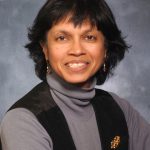 Prema Arasu has been named associate vice president for international programs and chief international officer at Washington State University. She is currently associate vice provost, Office of International Affairs at North Carolina State University, as well as the director, Global Health Initiative, and professor, Department of Molecular Biomedical Sciences, College of Veterinary Medicine. John Gardner, vice president for economic development and global engagement, said “I am very pleased that Dr. Arasu has agreed to lead international programs at Washington State University. Her extensive background in international affairs and focus on interdisciplinary scholarship makes her uniquely suited to not only build on existing strengths in IP, but also to foster even greater collaboration around issues of clean technology, sustainable development and global health.” Click here to learn more about Prema Arasu.
Prema Arasu has been named associate vice president for international programs and chief international officer at Washington State University. She is currently associate vice provost, Office of International Affairs at North Carolina State University, as well as the director, Global Health Initiative, and professor, Department of Molecular Biomedical Sciences, College of Veterinary Medicine. John Gardner, vice president for economic development and global engagement, said “I am very pleased that Dr. Arasu has agreed to lead international programs at Washington State University. Her extensive background in international affairs and focus on interdisciplinary scholarship makes her uniquely suited to not only build on existing strengths in IP, but also to foster even greater collaboration around issues of clean technology, sustainable development and global health.” Click here to learn more about Prema Arasu.
- DATE CHANGE FOR GLOBAL SOCIAL BOWLING EVENT AT THE GARAGE: Please note that the year’s first Global Social has been changed from March 3rd to March 17th. Is the competitive spirit alive in you and your organization? Do you consider yourself a better bowler than your global development counterparts? Well, now is the chance to prove it! For one night, Global Washington has decided to set aside our day job so that our members can ‘duke it out’ in the bowling alley. Join us to network and bowl with members from small and large non-profits, educational institutions, philanthropy and businesses who all share something in common: our passion for development issues on the local, national and global level. We are pleased to partner with the GARAGE on First Hill to bring you 2010’s first Global Social. Come out to connect and form bowling teams around YOUR shared region or YOUR shared issue while thinking of ways you can collaborate to overcome common challenges. Click here for more information.
Click here to see a full list of international development events on the Global Washington’s calendar. Upcoming events include:
- February 19: Service in Action Seminar Series 2009-2010: From Fear to Fun: Fundraising Basics to New Innovations
- February 20: Feminization of Labor in Southeast Asia: How Girls Feed Families, Stay Healthy and Cope with Exploitation
- February 22: “Malaria Control Beyond 2010”
- February 25: Celebrate International Washington at the Governor’s Mansion
- February26: Americans for UNFPA Luncheon for the Health and Dignity of Women
- March 5: “Mining and Indigenous Rights: The Struggle for Self-Determination in Guatemala”
- March 11: 2010 Leadership Legacy Awards
- March 17: Global Social Member Meet Up at the GARAGE
- March 18: Seeing Ourselves in “The Other” – Life Lessons From the Rwanda Genocide
Please submit your events to our calendar!
contacted 763
businesses, academic centers, nonprofits
and foundations in March and April 2009,
inviting them to complete a survey of their
global development activities.
Of an estimated 763 organizations, a
sampling of 122 met our definition of
global development work based on their
survey responses, including their reported
activities in the developing world and the
kind of issues they reported addressing.
